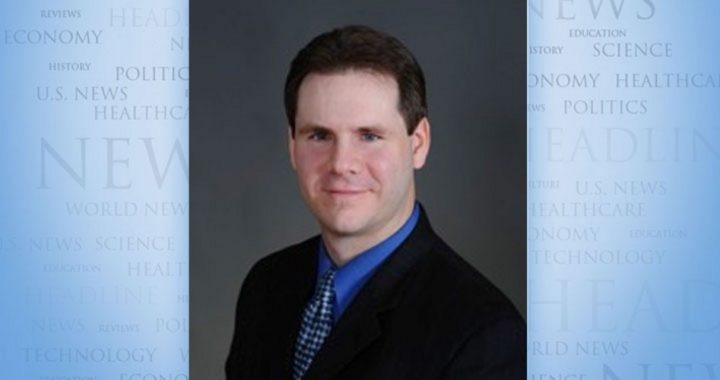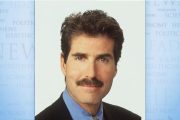
Death can happen suddenly, as when being shot or hit by a truck. But it’s more often a process involving steady and observable decline. It’s also true that symptoms can be confused with causes. Such is the case with listing Western civilization and the Muslim migrant crisis, opines the Wall Street Journal’s Bret Stephens. In a rather insightful piece entitled “In Defense of Christendom,” he writes:
The death of Europe is in sight. Still hazy and not yet inevitable, but nevertheless visible and drawing nearer—like a distant planet in the lens of an approaching satellite. Europe is reaching its end not because of its sclerotic economy, or stagnant demography, or the dysfunctions of the superstate. Nor is the real cause the massive influx of Middle Eastern and African migrants. Those desperate people are just the latest stiff breeze against the timber of a desiccated civilization.
Of course, critics point out that most of the migrants aren’t “desperate” at all. Estimates inform that 75 percent are males, mostly young and strong. Contrary to the narrative, only 25 percent are Syrian; moreover, as Muslim refugee and Jordanian opposition leader Dr. Mudar Zahran pointed out, “Seventy-five percent of those arriving from Syria come from safe area[s]; actually, the ones in disaster areas cannot … leave.” They are economic migrants, he tells us, seizing the opportunity of the current crisis to emigrate to a “rich nation with a generous welfare system,” such as Germany or Sweden. A good example is the tragic early September story of three-year-old Aylan Kurdi, who washed up on a Turkish beach. The unfortunate child’s death was used to beat the drum for open European borders, but here’s the truth: He, along with his parents and brother, had been living safely in Turkey for three years. And why did his father take the family on a journey, destination Greece, on a 15-foot dinghy?
He wanted free dental care (he’s also accused of being a people smuggler).
Yet these facts only strengthen Stephens’ case. It’s not that Westerners are just being fooled, but that it wouldn’t be possible were they not playing the fool. As Stephens also writes, “Europe is dying because it has become morally incompetent. It isn’t that Europe stands for nothing. It’s that it stands for shallow things, shallowly. Europeans believe in human rights, tolerance, openness, peace, progress, the environment, pleasure. These beliefs are all very nice, but they are also secondary.”
Stephens then explains that what “Europeans no longer believe in are the things from which their beliefs spring,” such as Christianity. It is then that you can descend into the situation G.K. Chesterton described when writing (I’m paraphrasing), “Nowadays, we have Christian values floating around detached from one another. Consequently, we see scientists who care only about truth but have no pity, and humanitarians who care only about pity but have no truth.”
Enter the very face of Western European leaders, German chancellor Angela Merkel. She has said, “Who are we to defend Christians around the world if we say we won’t accept a Muslim or a mosque in our country?” In response, American Thinker’s Rael Jean Isaac wrote Friday, “What is at issue is not ‘a Muslim’ or ‘a mosque’ but the transformation of Germany into an Islamic country.” And as Stephens said, speaking of “fundamental” distinctions, “What is Europe? It is Greece not Persia; Rome not Carthage; Christendom not the caliphate.” These facts seem to elude secular Europeans.
Merkel surely understands that at issue isn’t “a Muslim” or “a mosque” but a migration of great magnitude. Nor can her errant statement be explained away as mere rhetoric. Rather, it is not a failure to recognize the quantitative, but the qualitative.
Strengthening this point is that this isn’t just a phenomenon of “elites” endeavoring to import sympathetic prospective voters or to break down sovereignty or national identity. It reflects how this identity has already broken down. Just consider a poll showing that 63 percent of Germans still approve of Merkel’s job performance. Even more shockingly, 37 percent favor continuing current levels of Muslim migration and 22 percent believe it should be increased. Thus, what Stephens, Zahran, Isaac, and other critics issue dire warnings about, a healthy majority of Germans (59 percent) enthusiastically support.
Explanation? To a great extent, this again reflects the loss of Christian identity. When 11th-century Europeans responded to the Muslim invasion of a faraway land (the Byzantine Empire) and launched those great defensive campaigns, the Crusades, the call to arms was issued at the Council of Clermont by a Christian leader, Pope Urban II. Those in attendance responded to the call with “God wills it!” And the Europeans were emboldened by their belief that since Christianity is the Truth, Islam cannot be. To analogize it, consider that since 1950s Americans believed wholeheartedly in economic freedom’s validity, they quite naturally viewed communism as invalid and would readily rally to oppose it. And just imagine an American leader saying, “Who are we to defend economic freedom around the world if we say we won’t accept a Marxist or a re-education camp in our country?” in defense of a policy allowing the immigration of millions of avowed Marxists. The problem with this hypothetical statement and Merkel’s actual one is what’s implicit: a false equivalence born of a relativistic mindset.
In contrast, most Muslims (note that unlike in the West, religiosity is growing among Muslims) still possess the theological self-confidence of their expansionistic medieval forebears. They view Islam as the Truth and, consequently, other faiths as lies opposing it. And lies need to be stamped out.
This brings us to the aforementioned Dr. Zahran’s recent observation that “we do have a genuine problem with Muslims in Europe.… In most cases they don’t seem to fully integrate [assimilate] in the country. Not to mention the cases where there are people who want to turn Europe into a Muslim state in 30 or 40 or 50 years.” Note here a recent poll showing that, even in the United States, a majority of Muslims prefer Sharia law to American civil law. And what of that supposed remedy, assimilation?
To an extent, assimilation is a myth. That is to say, when large numbers of a group enter even a proud nation, they may ultimately change, but they also are agents of change. Consider: Did the large waves of Irish, Italians, Germans, and others (my ancestors) not change our land? Did the arrival of Catholics, Jews, Mormons, and other religious groups not alter our cultural landscape? You can argue that these changes were good, bad, or neutral. But nonexistent? That’s a bit fanciful. This is why im/migration isn’t just a matter of workers and jobs and economics. It’s literally a discussion about what kind of nation you wish to become. For the people make the nation and the government.
Yet the prospects for assimilation aren’t only influenced by the nature of the newcomers, but also that of the host culture. As to this, some years ago a man of Indian descent sent me an e-mail response to an article bemoaning our modern immigration paradigm. He said, quite indignantly and a bit contemptuously, that “assimilating” into modern American culture wasn’t exactly an attractive prospect. Of course, it’s tempting to dismiss such a person with “don’t let the door hit you on the way out.” Yet this man had expressed something I’d long understood: A prerequisite for assimilation is providing something attractive to assimilate into.
This can be analogized with guiding a child: Virtues are caught more than they’re taught. The words said are subordinate to the example set. Assimilation is essentially saying “Do things our way.” But what example do we set today? Newcomers see what is shown, and what is shown is what’s front and center in our media and entertainment: Reality TV and the Kardashians, the celebration of perversion, confusion over marriage and the sexes, and a people so culturally cowed that they exalt foreign cultures and excoriate their own. One could just imagine a befuddled newcomer exclaiming, “Why would we do things their way? They don’t even know what boys and girls are! It’s no wonder they’re ashamed of their own culture.” Willi Munzenberg, of Frankfurt School fame, once said “We will make the West so corrupt that it stinks.” This has occurred. The result is that migrants now come to the West mainly for the payday — and despite the putrescence.
And that shame, which drives so much policy today, is the issue. Stephens closes his piece with Pope Benedict XVI’s observation that the West has lost its “capacity for self-love” and now perceives in its own history only “the despicable and the destructive; it is no longer able to perceive what is great and pure.” And as with a self-loathing individual who destroys himself with drugs or drink, the West imbibes poisonous isms as it slowly extinguishes that great evil its altered eyes perceive: itself.



